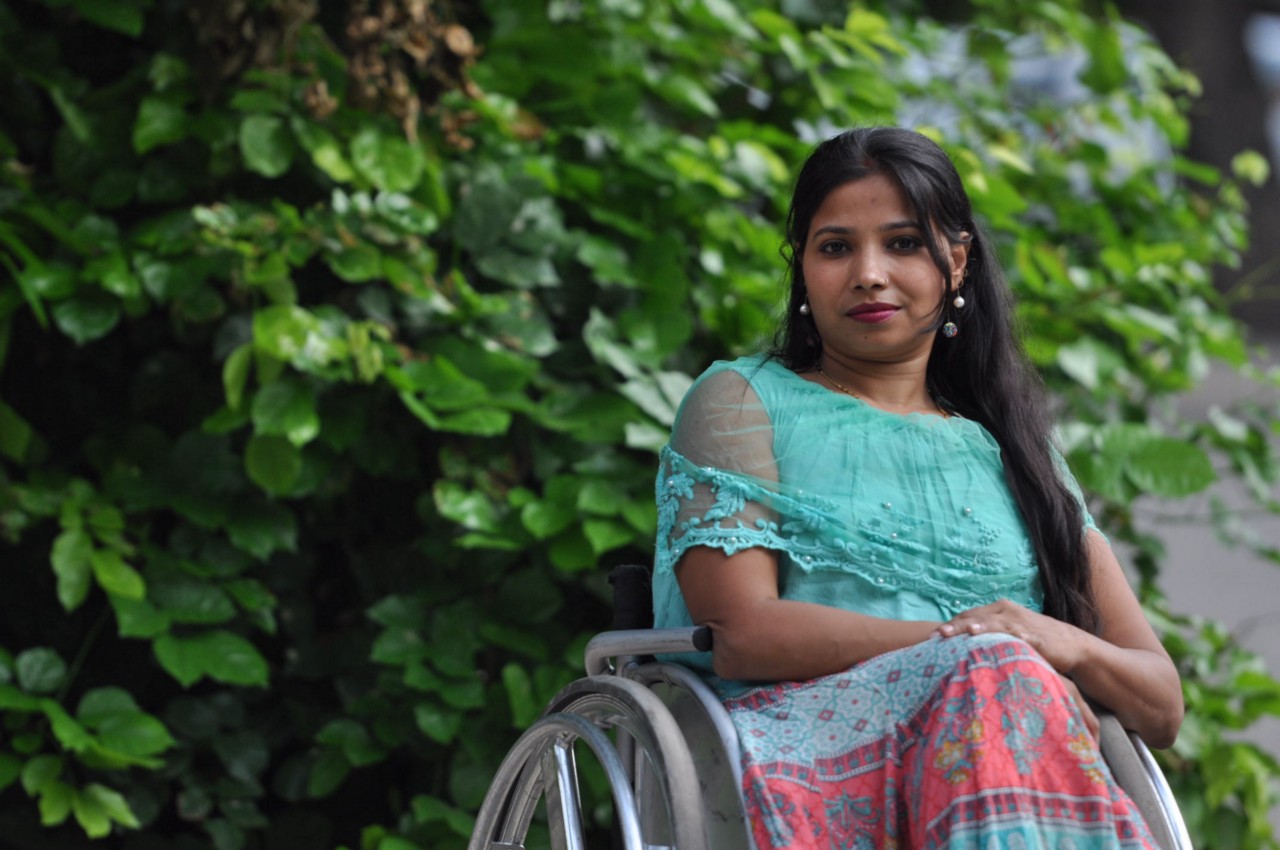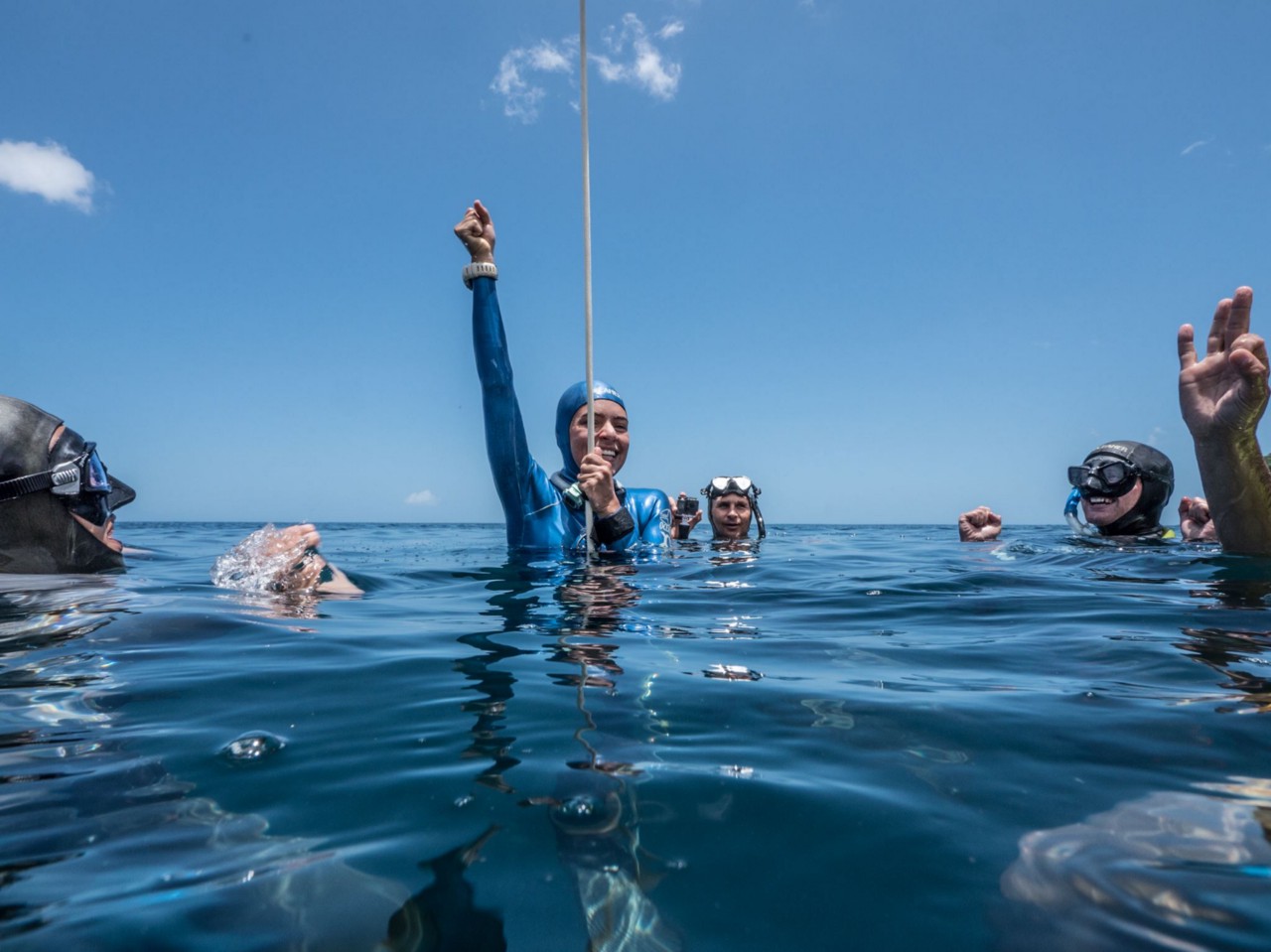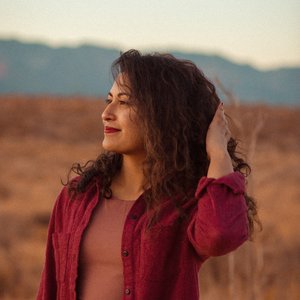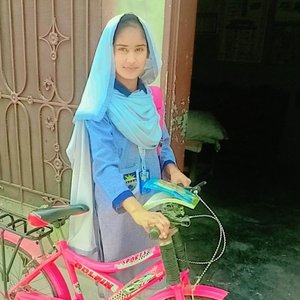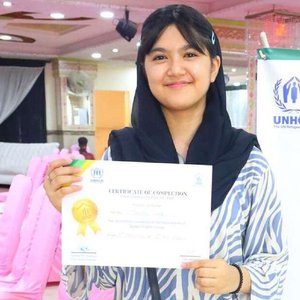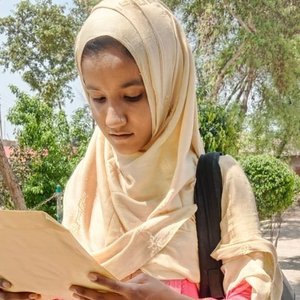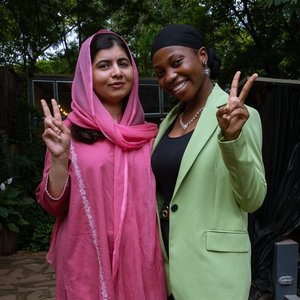Introducing Malala Fund’s Game Changers series
During the 2018 Winter Olympics and Paralympics, we are highlighting young female athletes who defy convention on and off the field.
The next generation of female athletes is here — and they are ready to lead. These young women are not only champions in their chosen sports, but also champions of social justice.
During the 2018 Winter Olympics and Paralympics, Malala Fund is putting the spotlight on 18 incredible female athletes. Our Game Changers are raising awareness about missing Indigenous women, advocating for girls to study STEM and speaking out for other para-athletes.
Yet their accomplishments do not get the recognition they deserve — female athletes receive only 4% of all sports media coverage. Many girls hoping to participate in sports are limited by gender bias or lack of funding.
But athletics enhance every aspect of girls’ lives. When girls play sports, they are healthier, stay in school longer and are more likely to succeed in the workforce. Female athletes are more likely to excel in traditionally male-dominated subjects, like STEM. Sports teach girls confidence, teamwork and leadership skills.
The young women we interviewed for this series hail from 12 countries. They are football players, cyclists, swimmers, boxers, runners, table tennis players, skeleton racers, freedivers, and martial artists. Each one is a testament to the amazing potential girls have when given the opportunity to learn and lead. Through their accomplishments on and off the field, they support every girl’s right to choose her own future.
Read more about Malala Fund’s Game Changers below.
In Brazil’s favelas — where violence and poverty are rampant — football provides an escape for a group of young women. Once a week, Rebecca, Dryka and Jessica play football in the only space in their community that is off limits to drugs and gang fights. On the pitch they shoot goals, support each other and create a safe space for girls to realise their potential.
Dryka is the captain of her Favela Street Football Team. She encourages children in favelas to play sports and continue their education. (Courtesy of Favela Street Foundation)
This week, Simi is in PyeongChang representing Nigeria as the first female skeleton Olympian from Africa. She shares with Malala Fund her journey and discusses what it is like to make history: “It feels amazing to be unapologetically blazing a trail and leaving a legacy. I love that through what I’m doing, I’m redefining Africa, and what people think about Africa, and female athletes as well and what’s possible.”
Simi will compete in the 2018 Olympics as the first female skeleton athlete from Africa. (Courtesy of Candice Ward)
Despite the fact that many people in her village believe girls shouldn’t play sports, Akshara began running at age 11. She now competes in national races and works to reduce stigma around sports and sport uniforms in her community.
Last year, Akshara organised a community race and invited women in her village to participate wearing their traditional clothes. (Courtesy of Bhumika Regmi / Malala Fund)
After Haven lost her legs in her biological parents’ suicide bombing in Vietnam, the Shepherd family adopted her and brought her to Missouri to join her six siblings. Haven is now a champion swimmer and Paralympic hopeful. When she’s not training, Haven shares her story with other para-athletes and advocates for increased diversity in model representation.
Haven says, “I’ve taken the fact that I don’t have legs and made it a positive in my life. Some things we can’t change, we just need to make the most of it. I like that I stand out and am different. My hope is that all girls could feel that way.” (Courtesy of Haven Shepherd Facebook)
Tracie, 19, Canada
Competing in the 2014 North American Indigenous Games inspired Tracie to become more active in supporting the rights of Indigenous peoples. The Métis teen started speaking out for missing and murdered Indigenous women and girls. Tracie discusses with us her advice for other young activists and why completing her education is important to her.
Competing at the North American Indigenous Games inspired Tracie to advocate for Indigenous rights. (Courtesy of John Woods / Globe and Mail)
Known as the fastest woman in the world on blades, Marlou van Rhijan is a three-time Paralympian and world record holder. She is also founder of a new initiative called Project Blade, which helps fit young athletes with their first running blades or bionic legs. Marlou hopes to make the path to athletics easy and fun for children with disabilities.
With Project Blade, Marlou recently took over an entire floor in the Nike store in Amsterdam and stocked it with Nike and Otto Bock professionals to help fit children with blades. (Courtesy of NRC)
Roma girls in Moldova are often forced to leave school and marry early — but Stela refuses to be one of them. The young boxer is determined to finish her education and become a world champion. She hopes that through her accomplishments in the ring, she can show her community “what a girl can do.”
After winning several medals at regional competitions in Maldova, 16-year-old Stela now dreams of becoming an Olympic boxer. (Courtesy of UN Women Moldova)
Suvarna is an international para-table tennis player who advocates for disability rights in India. She received multiple awards in recognition of her advocacy, including the National Role Model Award by President of India in 2014. Suvarna plans on continuing her campaign until every school is accessible to girls with disabilities.
Suvarna believes that change must start at schools: “People with disability and especially girls with disability don’t get the right education.” (Courtesy of Suvarna Raj)
While fleeing conflict in Syria, Yusra Mardini and her sister Sarah found themselves stranded in a broken-down dingy in the middle of the Mediterranean sea. The girls got in the water and swam for three and half hours to push the boat ashore and save the lives of their 20 fellow refugees. In 2016, Yusra competed in the 2016 Olympics as part of the first-ever refugee team. Now as a UNHCR Goodwill Ambassador, Yusra advocates on behalf of other refugees.
Yusra shares with Malala Fund: “No one thought I’d ever be where I am right now because I am a girl. I worked hard and fought and I’m still fighting to prove that girls have as much power as men.” (Courtesy of UNHCR)
Sofía Gómez Uribe is making waves in the freediving world — she currently holds two world records, one South American record and three Pan-American records. She uses her profile as a champion athlete to campaign for causes close to her heart, which include the environment, Hurricane Maria relief and lung cancer.
Sofía on representing Colombia in international competitions: “It is a true honor to represent my country around the world. It is an honor to be able to make people feel proud to be Colombian. To let them know there are many positive things happening in our country.” (Courtesy of La Patria)
Noorena, 20, Pakistan
Noorena’s journey to becoming an internationally renowned athlete was not easy — at age 15 she had to disguise herself as a boy in order to play cricket. Today, she competes around the world as a professional squash player and encourages other young women in Pakistan to participate in sports. She also uses crowdfunding on social media to help pay for girls’ tuition fees and athletic equipment.
Noorena uses her profile to help other female Pakistani athletes: “I want to make sure that the next generation of female athletes do not have the same issues I encountered on my sporting journey.” (Courtesy of Noorena Shams)
Scarlett is no stranger to overcoming hurdles on the track and in the classroom. When her girls’ school did not offer engineering classes, she petitioned to study at a neighbouring boys’ school that did. Scarlett managed to juggle the extra classes with training for state and national track and field championships. She hopes to qualify for the 2020 Olympics in 400 metre hurdles.
“I’ve always had a great interest in buildings and structures. The simplicity and strength of lines and angles,” says Scarlett on her love of engineering. (Courtesy of Scarlett Pye)
Vedangi is planning a trip across North America, Europe, Asia and Oceania — on her bicycle. She hopes to be the youngest and fastest woman to cycle around the world by completing her 29,000-kilometre solo trip. Vedangi writes an original piece for Malala Fund about her tour around the world.
Vedangi plans to cycle up to 200 miles per day and make it around the world within 100 days. (Courtesy of Callum Howard/Vedangi Twiter)
At age 13, Gaurika became the youngest Olympian to compete at the 2016 Games in Rio. Determined to support other Nepalese girls, she used her championships winnings to help rebuild schools destroyed by the 2015 earthquake. Now age 15, she balances her schoolwork and training with raising awareness about sex trafficking in Nepal.
Gaurika hopes to advocate for education “in her own small way” and raise awareness about challenges girls face in Nepal. (Courtesy of Gaurika Singh)
Hajra is captain of the Pakistani national women’s football team. Young female athletes in Pakistan often face discrimination, underfunding and lack of facilities. Hajra advocates to break down these barriers to empower girls through football. As a UNICEF Menstrual Hygiene Champion, she also helps to reduce stigmas regarding menstruation.
“I will do anything in my capacity to be the voice of women and girls playing football in Pakistan,” Hajra says. “I have immense hope.” (Courtesy of Hajra Khan Facebook)
When Rani isn’t roller skating, practising martial arts or batting on the cricket field, she is mentoring girls in her community and encouraging their parents to send them to school. Rani also writes poetry. In a poem she shared with Malala Fund, Rani addresses the issue of infanticide and selective abortion in India.
Some mornings, Rani practises karate with her schoolmates before class. (Courtesy of Bhumika Regmi / Malala Fund)
 Read more
Read more











